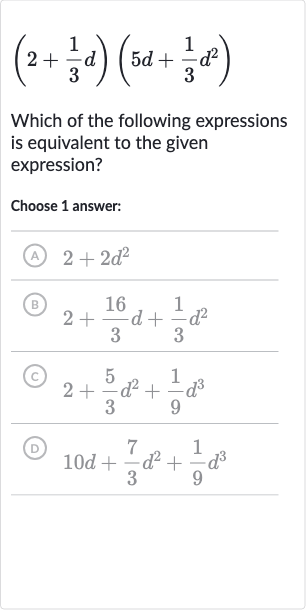Full solution
Q. Which of the following expressions is equivalent to the given expression?Choose answer:(A) (B) (C) (D)
- Apply Distributive Property: First, we will apply the distributive property (also known as the FOIL method for binomials) to multiply the two expressions.
- Perform Multiplication: Now, we will perform the multiplication for each term.
- Combine Like Terms: Next, we will combine like terms.
- Add Coefficients: Adding the coefficients of the terms:
- Simplified Expression: Now, we have the simplified expression:
- Compare with Options: We compare the simplified expression with the given options to find the match.The correct option is (D) .
More problems from Compare linear and exponential growth
QuestionGet tutor help
QuestionGet tutor help
QuestionGet tutor help
QuestionGet tutor help
QuestionGet tutor help
QuestionGet tutor help
QuestionGet tutor help

